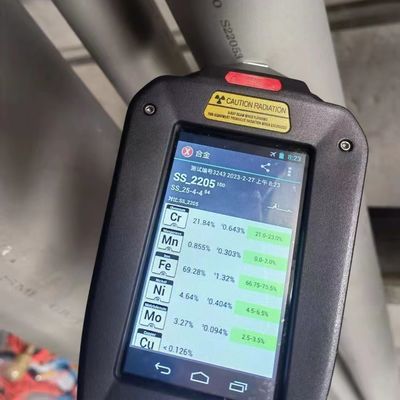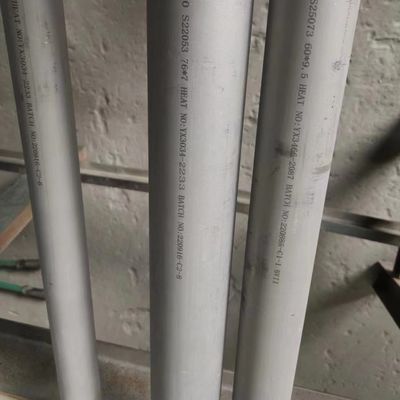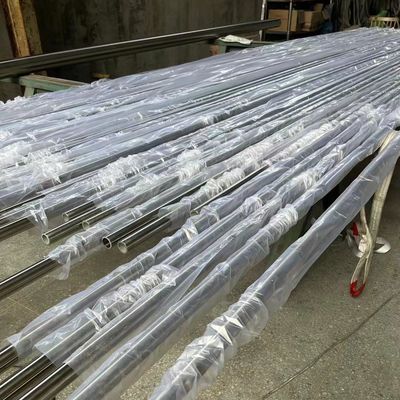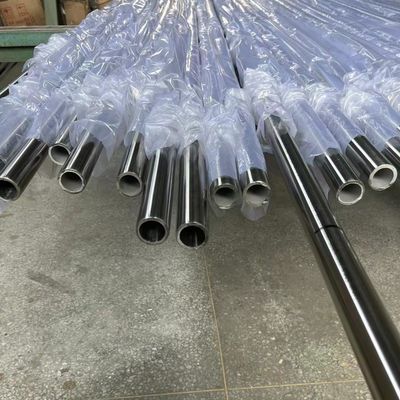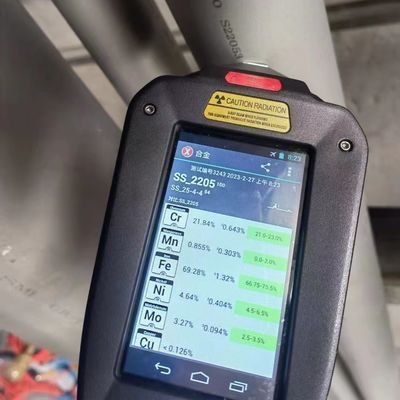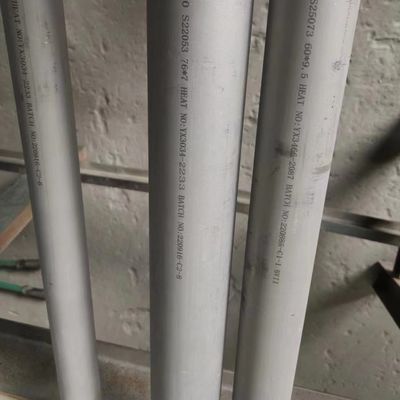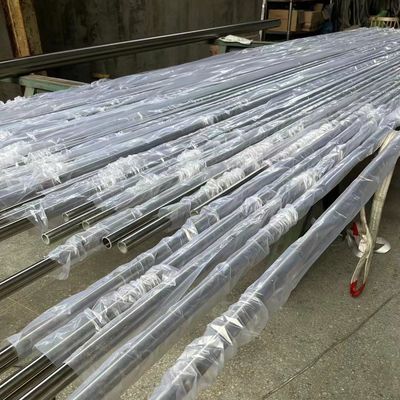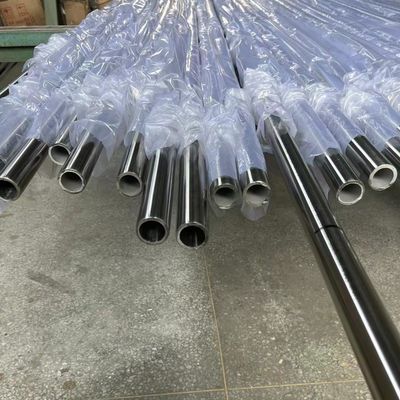-
 Raian IonescuMaterial quality very good. we have cooperate more than 10 Years. They trade lots kinds of steel material. All material quality good. They duty for all material quality. We are planing continue cooperate with them in the future
Raian IonescuMaterial quality very good. we have cooperate more than 10 Years. They trade lots kinds of steel material. All material quality good. They duty for all material quality. We are planing continue cooperate with them in the future
Inconel 625 / UNS N06625 Nickel Alloy Seamless Pipe SCH40S SCH80S

Contact me for free samples and coupons.
Whatsapp:0086 18588475571
Wechat: 0086 18588475571
Skype: sales10@aixton.com
If you have any concern, we provide 24-hour online help.
x| Products | Stainless Steel Pipe | Grade | Inconel 625 |
|---|---|---|---|
| Standard | ASTM GB EN | Length | 6m Or Custom Cutting Any Length As Request |
| Diameter | DN10 - DN400 | Wall Thickness | SCH10 - XXS Or Unstandard Size |
| Type | Seamless Pipe | Service | Cutting, Polishing |
| Application | Heat Exchanger | Packing | Wooden Box Or PP Bag |
| Highlight | SCH40S inconel 625 seamless pipe,SCH80S alloy 625 seamless pipe,SCH40S inconel 625 seamless tubing |
||
Inconel 625/UNS N06625 Nickle Alloy Seamless Pipe SCH40S SCH80S
| Products Name | Inconel 625 Stainless Steel Pipe |
| Pipe Type | Seamless Pipe . Welded Pipe |
| Surface | Pickling , polishing |
| Out Diameter | 6 - 508mm |
| Wall Thickness | 1.0 - 50.0mm |
| Length | 6m or cutting any length as request |
| Standard | ASTM / GB / EN / DIN / JIS / BS / BIS |
| Mainly Grade | 304 304L 304H 309S 310S 316L 316Ti 317L 321 347 2205 2507 904L 254SMO 800/800H Alloy20 ,Hastelloy Alloy, Monel Alloy,Inconel Alloy |
| Service | Cutting, Polishing, Hairline Finishing |
| MOQ | 200 Kgs |
| Packing | standard packing for export |
| Application | Industrial , food , medical, househould |
Inconel 625 is a high-performance nickel-chromium-molybdenum alloy known for its high level of strength, temperature resistance, and corrosion resistance. This superalloy is composed mainly of nickel (58% min.) followed by chromium, and molybdenum, niobium, iron, tantalum, cobalt, and trace amounts of manganese, silicon, aluminium, and titanium. Inconel 625 also commonly goes by the names: Haynes 625, Altemp 625, Nickelvac 625, and Nicrofer 6020.
Inconel 625 properties
Chemical Composition
| Ni | Cr | Mo | Fe | Nb + Ta | Co | Mn | Al |
|---|---|---|---|---|---|---|---|
| 58 - 71% | 21 - 23% | 8 - 10 % | 5 % | 3.2 - 3.8 % | 1 % max. | 0.5% max. | 0.4% max. |
Exceptional material strength
The strength of Inconel 625 lies not only in its nickel-chromium base but also the hardening mechanism of niobium and molybdenum. The alloy matrix is strengthened by the interaction of niobium with molybdenum that offers high strength without the need for precipitation-hardening treatment. The tensile strength of this superalloy is 690 MPa, while its yield strength measures 275 MPa.
High temperature resistance
With a melting point of about 1300°C and a thermal expansion coefficient of 1.28 x 10-5 1/K (at 20°C), Inconel 625 resists a wide range of temperature extremes from cryogenic to extremely high.
At high temperatures in the presence of oxidising agents, the titanium and niobium compositions of the oxide film on Inconel 625 increase drastically to form a natural protective layer in the material.
Corrosion resistance
The unique combination of its components makes Inconel 625 highly resistant to corrosive substances. This is the reason why this superalloy works excellently under high saline seawater, and more so in milder environments such as fresh water and standard atmospheric conditions.
Upon exposure to oxidising agents, Inconel 625 is protected naturally by its nickel-chromium matrix. Meanwhile, molybdenum protects the material against pitting corrosion. In 15% sulfuric acid, the material corrodes at a minimal rate of 0.188 mm per year.
High level of fabricability
Inconel 625 was designed to have better weldability than earlier alloys, with no signs of cracking when exposed to strain and temperature changes post-welding. Its high creep resistance and yield strength make this superalloy a good choice for tubes, piping, and plant equipment that require welding.
Production and processing
The production and composition of Inconel 625 depend on the required specifications of the material. For instance, a standard AMS 5666 or UNS N06625 variant of Inconel 625 may contain 58% nickel, 22% chromium, and 3.5% niobium.
Heat treatment of alloys is necessary to increase material toughness. In the case of Inconel 625, the following treatments may be applied:
- High solution annealing: This involves soaking (for 1 hour maximum) under 1095-1205°C, and then reducing the temperature in ambient air or cooling media. The result is an alloy with superior creep resistance.
- Low solution annealing: This is similar to high solution annealing but at a lower temperature of 925-1040°C. The alloy produced carries good tensile strength and ductile properties.
- Stress relief: This process involves soaking up to 4 hours at 900°C, followed by cooling in ambient air. The resulting product has exceptional integrity in cryogenic environments, as well as optimum strength and stress resistance.
Forging Inconel 625 requires a furnace temperature of 1010-1150°C. Going below this range may cause stiffness, requiring the need to reheat the material.
Applications of Inconel 625
Marine applications
Owing to its high corrosion resistance-- especially pitting and crevice resistance, Inconel 625 is an ideal for high saline, underwater applications. The material is used as propeller blades for boats, mooring lines to secure ships and similar vessels, accessories and fixtures for submarines, and parts for oceanographic equipment.
Aerospace equipment
The superalloy has also found its way into the aircraft industry, particularly for exhaust equipment, fuel lines, heat exchanger casings, and rocket components. This is because Inconel 625 works well even in extreme temperatures under high stress.
Nuclear technology
Its strength as well as its resistance to corrosion and stress make Inconel 625 a suitable component of nuclear reactors, particularly in the control rod and reactor core. Nuclear systems also generally involve high temperatures beyond 650°C, in which the strength of Inconel 625 can withstand.
Industrial processing
Because the alloy is conveniently fabricable and resistant to heat and corrosion, it is a useful ingredient in the production of manufacturing equipment such as vessels, heat exchangers, valves, and fluid distribution systems. Its excellent weldability also makes it a suitable component for pipes and tubes used in manufacturing plants.
![]()
![]()
![]()
![]()



